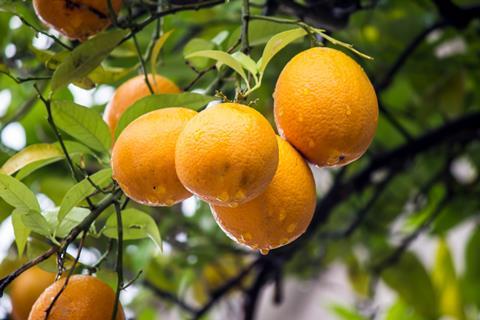Persistent rains in the Western Cape have affected harvesting while the logistics network is also under some pressure

Heavy rainfall around South Africa’s Western Cape has caused flooding in some areas, with the citrus industry in particular affected by the extreme weather.
Citrusdal, located in the Olifants River Valley, has been hit particularly hard after flooding cut off its road network.
Gerrit van der Merwe, director at the Citrus Growers Association and managing director of ALG Estates, told Fruitnet today (19 June) that for now, Citrusdal was closed for trucks but would hopefully have a secondary road up and running by Wednesday.
”There is definite major infrastructure damage, like road and pump stations, the problems are being assessed,” he said.
“However the biggest issue is the orchards close to the river, and the damage to these goes from a best cast scenario – that you can pick for processing purposes – to the crop being lost in the river, to the extreme which is whole orchards being lost and needing to be replanted.
”The effect on the crop, it is tough to put a number on it, especially the later varieties,” he explained, ”but your Navels and early soft citrus will be well down.
”I have to guess the early soft citrus is pretty much finished due to over-ripening and river damage,” van der Merwe added. “The Navels will be down a lot, but some fruit is also stuck in the harbour due to extreme weather, so to put a number on it from a shipping perspective is tough.”
Jacques du Preez, general manager for trade and markets at Hortgro, confirmed that the citrus business would be the hardest hit and noted that there could be logistical disruption.
”The pome and stonefruit harvests are of course over, so from the production side we’re good,” he noted. ”There has been some damage to orchards, pumphouses, infrastructure, but nothing newsworthy at this stage.
”The biggest impact is on the citrus guys who are currently harvesting,” he said. ”[There is] some disruption in Cape Town port, mainly wind, but it’s not exceptional compared to wind of January and February.
”The growers are already talking about good harvests come the next season,” he added. ”A bit early… but it’s been very long since we have had such a cold, wet start to the winter.”



